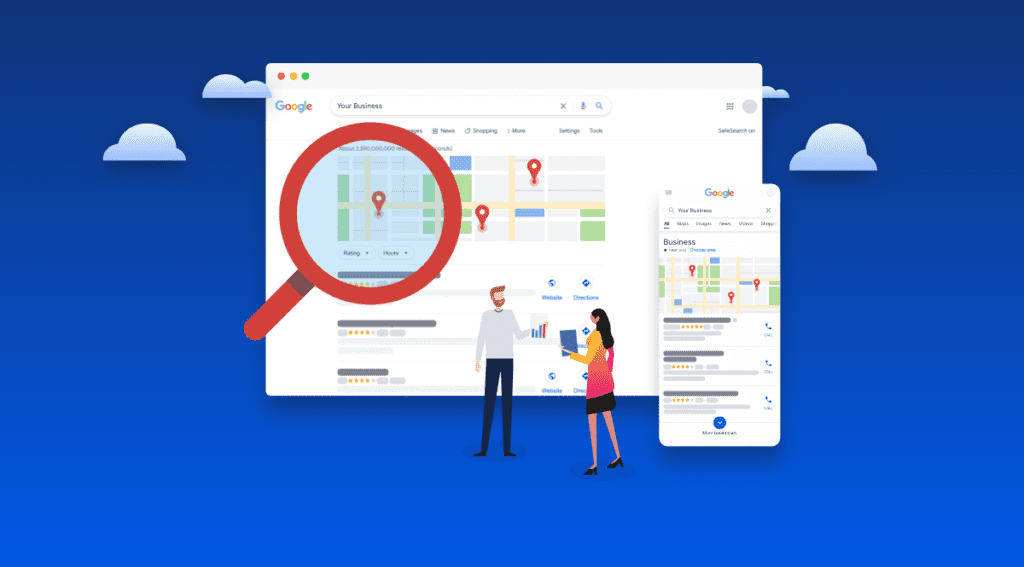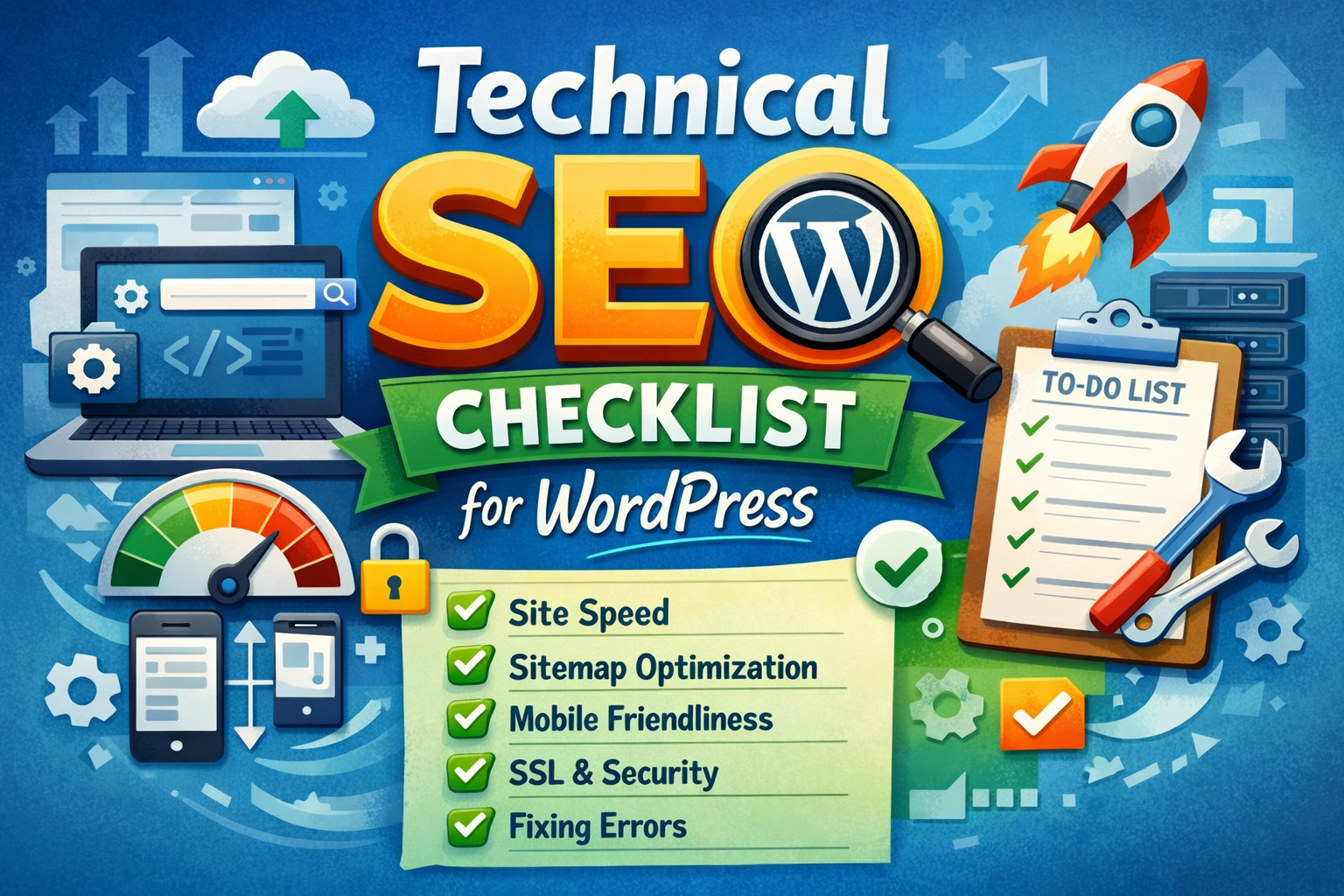Unlocking Success: Local SEO Strategies for Dentists
Local SEO for dentists is a tailored approach to optimizing online visibility and attracting patients within specific geographic areas. By implementing effective strategies such as Google My Business optimization, local content creation, and citation building, dental practices can enhance their presence in local search results and connect with potential patients in their communities. This overview provides insights into the key elements and importance of local SEO for dentists, empowering practices to leverage digital marketing to grow their patient base and succeed in their local markets.
Introduction to Local SEO

Imagine this: you’re searching for the best coffee shop near you, and within seconds, Google serves up the closest spots, complete with reviews, directions, and even photos. How does this happen? The answer is Local SEO.
Local SEO, short for Local Search Engine Optimization, is a digital marketing strategy that helps businesses become more visible in local search results. It’s all about connecting nearby customers with the goods and services they need. Whether you’re a cozy bakery on Main Street or a plumber serving a specific region, Local SEO ensures that when people search for businesses “near me,” yours is the one they see first.
Why is it so important? For one, mobile search has made local queries explode. Think about it. If someone searches “pizza delivery,” they’re not just looking for any pizza delivery; they want one close by, fast. Having a strong local SEO presence puts your business in front of these ready-to-buy customers, often in real time. It’s one of the most powerful tools to drive foot traffic or service-based inquiries straight to your door.
This blog post will give you a step-by-step look at Local SEO, why it matters, and how it can turn searchers into loyal customers. Whether you’re just hearing about Local SEO or need a quick refresh, you’re in the right place!
Understanding Local SEO for Dentists
In the digital landscape, local SEO serves as a beacon for businesses to navigate the competitive realm of online visibility. For dentists, mastering local SEO is akin to unlocking the door to a plethora of local opportunities. But what exactly does local SEO entail for dental practices?
What is local SEO?
At its core, local SEO is a strategic approach aimed at optimizing a dental practice’s online presence to attract local patients. It involves a series of tactics and techniques tailored to enhance visibility in local search results, particularly on platforms like Google, Bing, and other search engines.
Why is it crucial for dentists?
For dentists, local SEO is not just an option; it’s a necessity. With the majority of patients turning to search engines to find dental services in their vicinity, appearing at the top of local search results can significantly impact a practice’s success. Whether it’s attracting new patients or retaining existing ones, a robust local SEO strategy can make all the difference for dental practices striving to thrive in their local communities.
Understanding the essence of local SEO lays the foundation for dentists to embark on a journey towards greater online visibility and success in the digital realm.
Key Elements of Local SEO

To succeed in local search rankings and attract local customers, having a strong Local SEO strategy is essential. Here are the key components you need to focus on to ensure your business shows up when people in your area are searching for products or services like yours:
1. Google My Business (GMB) Optimization
Your Google My Business profile is the backbone of Local SEO. It’s what allows your business to appear in local search results, Google Maps, and the coveted local pack (the top three results displayed in a boxed section).
- Claim and Verify Your Listing: Ensure your business is verified, as only verified listings can appear in Google searches.
- Accurate Business Information: Include consistent details like your business name, address, phone number (NAP), website, and operating hours.
- Add Photos: High-quality images of your storefront, products, or services make your profile more engaging and credible.
- Categories and Attributes: Select the most relevant business categories and highlight key attributes, like “wheelchair accessible” or “family-owned.”
- Post Regular Updates: Use the GMB posts feature to share updates, promotions, and events to engage users and keep your profile active.
2. Local Keywords Optimization
Local keywords are the terms people use when searching for businesses in a specific area. To optimize for local searches, you need to integrate these into your website content and metadata.
- Conduct Keyword Research: Use tools like Google Keyword Planner, Ubersuggest, or SEMrush to find keywords with a local focus, such as “best pizza in Chicago” or “plumber near me.”
- Update Key On-Page Elements:
- Title tags and meta descriptions.
- Header tags (H1, H2).
- Alt text for images.
- Create Location-Specific Content:
- Write blog posts or service pages targeting your local audience. For example, “Top 10 Beaches in Miami to Visit This Summer.”
3. Online Reviews and Reputation Management
Reviews play a critical role in gaining customer trust and boosting local rankings. Google and other search engines prioritize businesses with positive reviews and high customer engagement.
- Encourage Reviews: Politely ask happy customers to leave feedback on your Google My Business profile, Yelp, or other platforms.
- Respond to Reviews: Thank customers for positive reviews, and professionally address negative ones to show you care about their experience.
- Diversify Your Review Platforms: While Google is most important, aim to collect reviews on niche platforms like Facebook, Trustpilot, or industry-specific sites (e.g., TripAdvisor for travel businesses).
4. Local Citations and Directory Listings
A local citation is any online mention of your business’s name, address, and phone number (NAP). Being listed on reputable directories strengthens your local authority and improves your rankings.
- Consistent NAP Information: Always ensure your business name, address, and phone number are accurate and match across all platforms.
- Submit to Local Directories:
- General directories like Yelp, Bing Places, and Apple Maps.
- Industry-specific directories related to your business.
- Check for Duplicates: Remove duplicate or outdated listings as they can confuse search engines and hurt your rankings.
5. Mobile Optimization
Most local searches are performed on mobile devices, with users often making real-time decisions. If your website isn’t optimized for mobile, you risk losing potential customers.
- Responsive Design: Make sure your site adjusts seamlessly to any screen size, whether on a smartphone or tablet.
- Fast Loading Times: Optimize images, compress files, and minimize redirects to ensure your pages load within 2-3 seconds.
- Click-to-Call Buttons: Make it easy for users to call your business directly with mobile-friendly CTAs.
- Location-Based Features:
- Include a map to your location.
- Provide driving directions embedded into your site.
6. Build Local Backlinks
Backlinks remain a crucial ranking factor in SEO. Getting links from local websites shows search engines that your business is relevant in your area.
- Partner with Local Organizations:
- Sponsor local events or non-profits.
- Join your local chamber of commerce or neighborhood associations.
- Collaborate with Nearby Businesses:
- Write guest blogs or feature local influencers to share your content.
- Promote Local Media Coverage:
- Share press mentions, articles, or interviews on your website and social channels.
7. Schema Markup for Local SEO
Schema markup, or structured data, helps search engines understand your content better. Adding local schemas signals to Google that your business serves a particular area.
- Local Business Schema: Include your business name, address, phone number, and hours.
- Reviews Schema: Highlight customer reviews in search snippets.
- Event Schema: If you host local events, use structured data to promote them in search results.
By focusing on these essential components, you can build a strong local online presence that helps your business attract nearby customers and stand out in local search results.
Creating Local Content

In the realm of local SEO for dentists, content creation plays a pivotal role in engaging local audiences and enhancing online visibility. By crafting content that resonates with your local community, you can attract more visitors to your website and establish your dental practice as a trusted authority in the area.
Blogging about local events
One effective strategy for creating local content is to blog about local events and activities relevant to your audience. Whether it’s highlighting community festivals, charity drives, or health awareness campaigns, sharing content about local events can help you connect with your target audience on a personal level and drive traffic to your website.
Highlighting community involvement
Another way to create local content is to showcase your dental practice’s involvement in the community. Whether you’re sponsoring a local sports team, participating in volunteer events, or hosting educational seminars, highlighting your community involvement can help you build rapport with local residents and differentiate your practice from competitors.
Building Citations and Backlinks

Building citations and backlinks is a critical aspect of local SEO for dentists, as it helps improve the credibility and authority of your dental practice in the eyes of search engines. By strategically acquiring mentions and links from relevant websites and directories, you can enhance your clinic’s visibility in local search results and attract more patients to your practice.
Importance of citations for local SEO
Citations refer to mentions of your dental practice’s name, address, and phone number (NAP) on other websites and online directories. These citations serve as signals to search engines that your practice is legitimate and trustworthy, thereby improving your clinic’s ranking in local search results.
Strategies for building local citations
To build local citations effectively, start by submitting your clinic’s information to reputable online directories such as Google My Business, Yelp, Healthgrades, and Yellow Pages. Additionally, ensure that your NAP information is consistent across all online platforms to avoid confusion and maintain credibility.
Securing backlinks from local websites
Backlinks, or links from other websites to your clinic’s website, are another crucial factor in local SEO. Aim to secure backlinks from local websites and businesses, such as local newspapers, community organizations, and industry associations. These backlinks not only improve your website’s authority but also signal to search engines that your practice is relevant to local search queries.
By focusing on building citations and backlinks from relevant and authoritative sources, you can strengthen your dental practice’s online presence and position it for success in local search results.
Managing Reviews and Reputation

In the digital age, online reviews can significantly impact a dental practice’s reputation and success. Managing reviews effectively is crucial for dentists looking to maintain a positive online presence and attract more patients to their clinics.
Encouraging patient reviews
Encouraging satisfied patients to leave positive reviews about their experiences can help bolster your dental practice’s reputation and credibility online. Consider implementing strategies such as sending follow-up emails or providing incentives for patients who leave reviews to increase participation.
Responding to reviews professionally
Responding promptly and professionally to both positive and negative reviews is essential for maintaining a positive online reputation. Express gratitude to patients who leave positive feedback and address any concerns or issues raised in negative reviews promptly and empathetically. By demonstrating a commitment to patient satisfaction, you can mitigate the impact of negative reviews and showcase your practice’s dedication to excellence.
Mobile Optimization

In today’s mobile-centric world, ensuring that your dental practice’s website is optimized for mobile devices is essential for attracting and retaining patients. With an increasing number of users accessing the internet and conducting local searches on smartphones and tablets, mobile optimization has become a critical component of local SEO for dentists.
Importance of mobile-friendly websites
Having a mobile-friendly website is crucial for providing a seamless and user-friendly experience to visitors accessing your site on mobile devices. A mobile-friendly website loads quickly, displays content properly, and is easy to navigate on smaller screens, enhancing user satisfaction and engagement.
Optimizing for voice search
With the rise of voice assistants like Siri, Google Assistant, and Amazon Alexa, optimizing your website for voice search has become increasingly important for local SEO. Voice search queries often have a conversational tone and are more likely to include location-specific terms, making it essential to tailor your content to match user intent and language patterns.
By optimizing your dental practice’s website for mobile devices and voice search, you can improve its visibility in local search results and provide a seamless experience to patients searching for dental services on their smartphones and other mobile devices.
Measuring Success with Analytics

Tracking the performance of your dental practice’s local SEO efforts is essential for evaluating the effectiveness of your strategies and making data-driven decisions to improve your online visibility. By leveraging analytics tools, you can gain valuable insights into various aspects of your website’s performance and optimize your local SEO tactics accordingly.
Tracking local SEO performance
Using tools like Google Analytics and Google Search Console, you can monitor key metrics such as website traffic, keyword rankings, and user engagement to gauge the effectiveness of your local SEO efforts. Pay attention to metrics such as organic search traffic, bounce rate, and average session duration to assess how well your website is performing in local search results.
Adjusting strategies based on data
Analyzing the data from your local SEO campaigns allows you to identify areas for improvement and refine your strategies to better reach your target audience. For example, if you notice that certain keywords are driving a significant amount of traffic to your website, you can focus on optimizing your content around those keywords to further improve your rankings.
Additionally, tracking user behavior on your website can help you identify opportunities to enhance the user experience and increase conversion rates. By analyzing which pages have the highest engagement rates and which ones have the highest exit rates, you can pinpoint areas for optimization and tailor your content to better meet the needs of your audience.
By continuously monitoring and analyzing your dental practice’s local SEO performance, you can identify trends, uncover insights, and make informed decisions to drive sustainable growth and success in your local market.
Conclusion
In conclusion, local SEO is essential for dentists who want to attract more patients to their clinics and grow their practices. By optimizing your clinic’s online presence for local search, you can improve your visibility in local search results, attract more local patients, and ultimately increase your clinic’s revenue.


